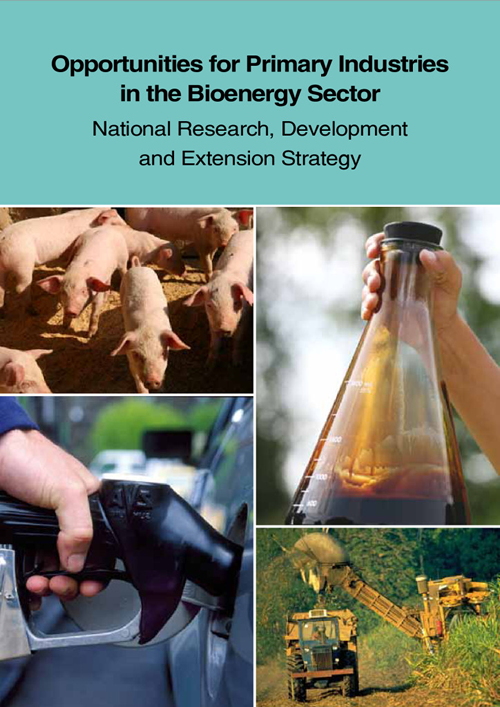Bioenergy is already making a substantial contribution to meeting global (including Australian) energy demand, and that contribution could be expanded very significantly in the future. However, bioenergy is a complex topic that impacts a range of important policy areas:
Energy security, through improving the affordability, reliability and/or resilience of energy supply – particularly liquid fuels in a world where future oil prices and availability are uncertain;
Greenhouse gas (GHG) abatement, through mitigation and displacement of fossil fuels, particularly after a price for carbon reduction is established;
Land and water use, where experience elsewhere from direct and indirect land use change has seen adverse impacts on food prices and/or biodiversity concerns emerge where biomass feedstock production competes for scarce resources; and
Rural and regional development, through new market opportunities for farm-based products, salinity mitigation, soil protection and/or increased biodiversity.
While primary industries will be the major suppliers of biomass feedstocks to the downstream producers of bioenergy products, primary industries – as crucial as they are in the bioenergy value chain – are just the beginning of a complex, industrial value chain that results in energy production for a range of stationary and transport applications.
Efficient and sustainable production of a wide range of biomass feedstocks in sufficient volume and at costs that will meet the needs of those bioenergy producers are key challenges for primary industries. Adding further complexity are the sustainability challenges across social, environmental and economic dimensions. Bioenergy systems have the capacity to address environmental issues and social aspects – but to meet these goals requires integrated management of the bioenergy value chain from growing, harvest and transport of feedstocks to their conversion into useful end-products.





